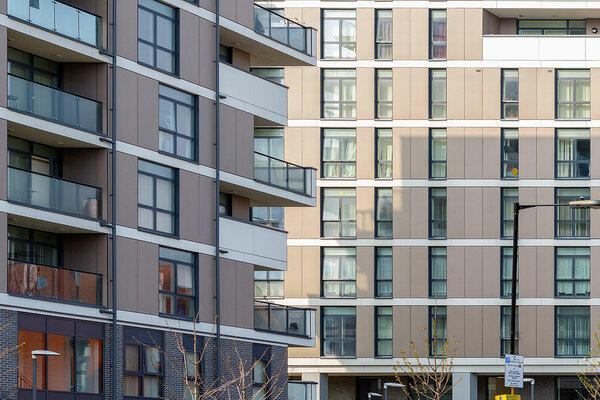The Week in Housing: has the sector’s zero-carbon drive been too slow?
A weekly round-up of the most important headlines for housing professionals
Good afternoon.
If this summer has shown us anything, it is that climate change is real, and the impacts are not decades away but are happening now.
Wildfires in Greece, floods in Germany, and Madagascar teetering on the edge of the world’s first climate change-induced famine are examples that demonstrate this.
Housing accounts for around 14% of the UK’s greenhouse gases and according to the Committee on Climate Change, the sector’s overall emissions need to be reduced by 24% by 2030.
With these disasters and the targets clear, you would expect a huge reaction from the sector, but has it responded?
When interviewing G15 chair Geeta Nanda two weeks ago, we asked whether the sector had been too slow in driving the zero-carbon agenda. The interview didn’t instil confidence that the sector was moving at breakneck speed. Ms Nanda said that the sector was largely at the “data collection stage”, adding: “Have we been slow?
Give us the money and see what we can do.”
It is clear that the zero-carbon drive hasn’t yet been felt by tenants. This morning we published a survey in which it was found that 63% of social housing tenants hadn’t even heard of “net zero”. Whether that is a government problem or sector problem, it is hard to tell. I would suspect a bit of both.
I must admit it is only in the past 18 months to two years that I have seen associations talking about and assessing the zero-carbon agenda and sustainability in a more meaningful way. It is only now that we are seeing the first proper widescale assessments of what the cost implications could be. There is no doubt that the building safety scandal following the Grenfell disaster has diverted a lot of resource away from net zero. Understandably, landlords will prioritise resident safety above anything else.
But there is hope. The Social Housing Decarbonisation Fund launched on Monday and, although much more funding is needed, it will start a bigger drive to the net zero target.
One cannot understate how important housing associations and councils will be in reducing emissions. As landlords of millions of homes, they can use economies of scale to drive huge retrofitting programmes and share knowledge and resources throughout the sector.
The movement towards sustainability-linked loans and sustainable bonds will further help this push, freeing up funds that are linked to net zero goals.
Elsewhere this week, the big stories hitting the Inside Housing site include a story which revealed that there had been 15 reports made to the National Fraud Intelligence Bureau linked to EWS1 forms. The story is yet more evidence of how the process, which has little regulation, can potentially be abused.
Another popular story among readers was the news that L&Q was introducing a reverse staircasing policy for shared owners in exceptional circumstances. In the L&Q case, which was revealed in the Housing Ombudsman’s latest batch of case reports, a leaseholder requested a reverse staircasing because they could not afford their current share. However, after reviewing the case, the ombudsman found that L&Q had not provided the correct information and also called for it to reconsider its reverse staircasing policy in extreme circumstances. L&Q has responded with a change in policy.
Turning now to our longer-form articles, deputy news editor Nathaniel Barker put together this excellent explainer about what the new Social Housing Pension Scheme valuation could mean for anyone who is part of the fund.
And finally, congratulations to Lara Oyedele, who was voted in as vice-president of the Chartered Institute of Housing this week. She saw off competition from Jill Haley and Chan Kataria, in what the professional body described as a “close-run race”.
Jack Simpson, news editor
Editor’s picks: five must-read stories
- L&Q introduces reverse staircasing policy for shared owners following ombudsman investigation
- Explainer: what the SHPS valuation means for housing associations and employee pensions
- Capital conundrums: G15 boss Geeta Nanda assesses the issues London landlords face
- Sadiq Khan to expand Right to Buy-back fund to house Afghan refugees
- National fraud bureau receives 15 reports linked to EWS1 forms
Sign up for our Week in Housing newsletter
Already have an account? Click here to manage your newsletters












